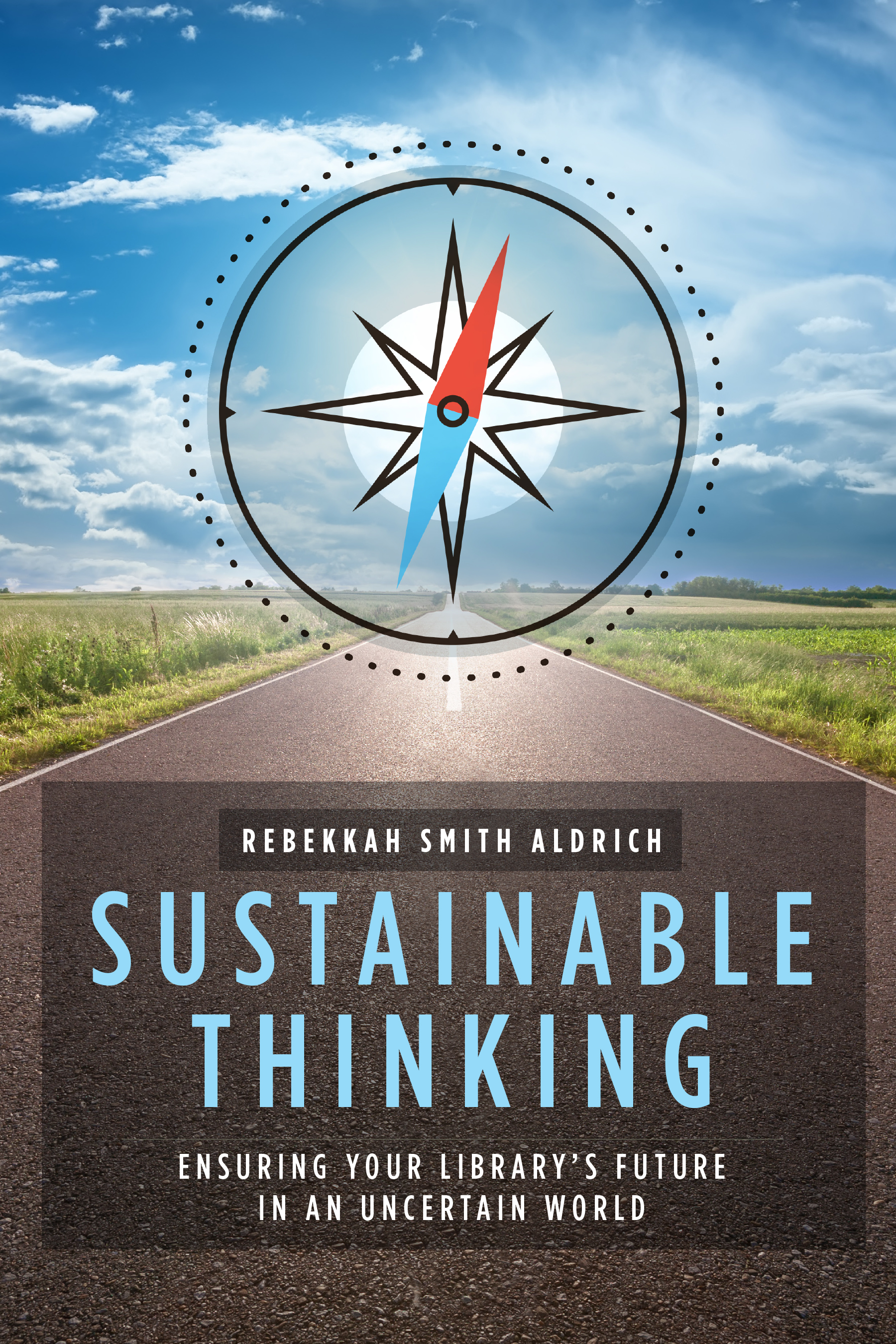ALA Press Release for my first book!
Charting the course of the future library through sustainable thinking
For Immediate Release
Tue, 02/27/2018
Contact:
Rob Christopher
Marketing Coordinator
ALA Publishing
American Library Association
(312) 280-5052
rchristopher@ala.org
How we talk about what we do is just as important as what we do, and in communicating the value of libraries to our society what our profession needs is confidence, determination, and the will to succeed. In her inspiring and pragmatic new book “Sustainable Thinking: Ensuring Your Library’s Future in an Uncertain World,” published by ALA Editions, Rebekkah Smith Aldrich shows that the first step towards a sustainable library is sustainable thinking: a determined yet realistic attitude that will help your library spot opportunities for institutional advancement, advocate for and safeguard operating funds, and generate intense loyalty from the communities you serve. Nothing less than a compass to help chart the course of your library’s future, this book:
- begins with a situation report that examines the myriad societal disruptions that are impacting libraries and discusses why resiliency is a key component of sustainability;
- defines how sustainable thinking encompasses not just the environment but economics and social equity as well;
- provides strategies for supporting the core values of librarianship by following the Three Es of Sustainable Libraries;
- lays out a host of tactics to build intense loyalty to your library from the inside out, including ways to foster an organizational culture of sustainable thinking through policy changes and purposeful leadership;
- guides you in communicating effectively with the community, thereby ensuring that your advocacy connects with the maximum number of residents, opinion leaders, and decision makers;
- demonstrates how to use construction and renovation projects as unique opportunities for positive changes; and
- offers worksheets, discussion questions, checklists, additional resources, and many other useful tools that will help you put sustainable thinking into action.
Aldrich (LEED AP) serves as the coordinator for library sustainability at the Mid-Hudson Library System in New York. Her work has focused on library leadership, governance, marketing, and facility design, all with an eye toward inspiring financial investment in libraries. She is the sustainability columnist for Library Journal, cochair of the New York Library Association’s Sustainability Initiative, and a founding member of the American Library Association’s Sustainability Round Table. Named a Library Journal Mover & Shaker, she is a frequent national presenter and writer on the topic of leading libraries forward in smart, practical, and effective ways.

